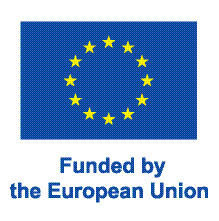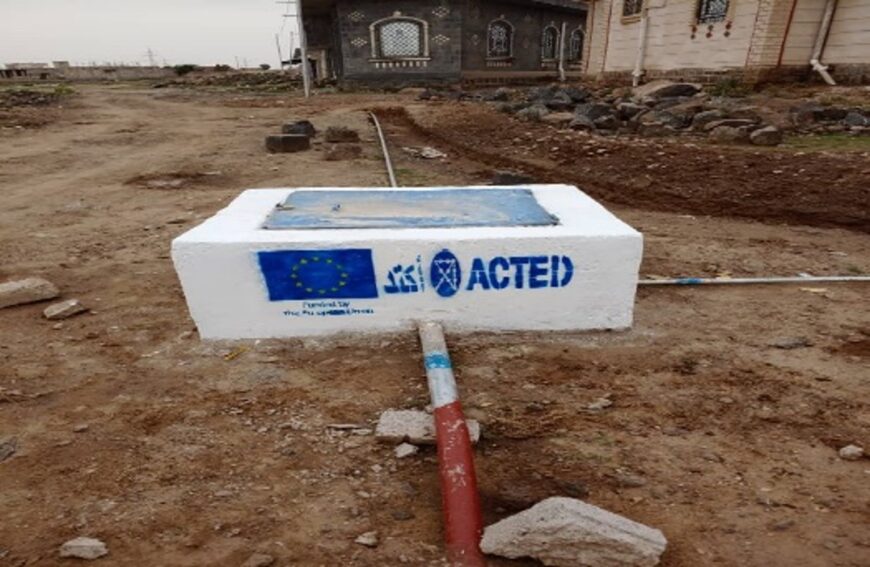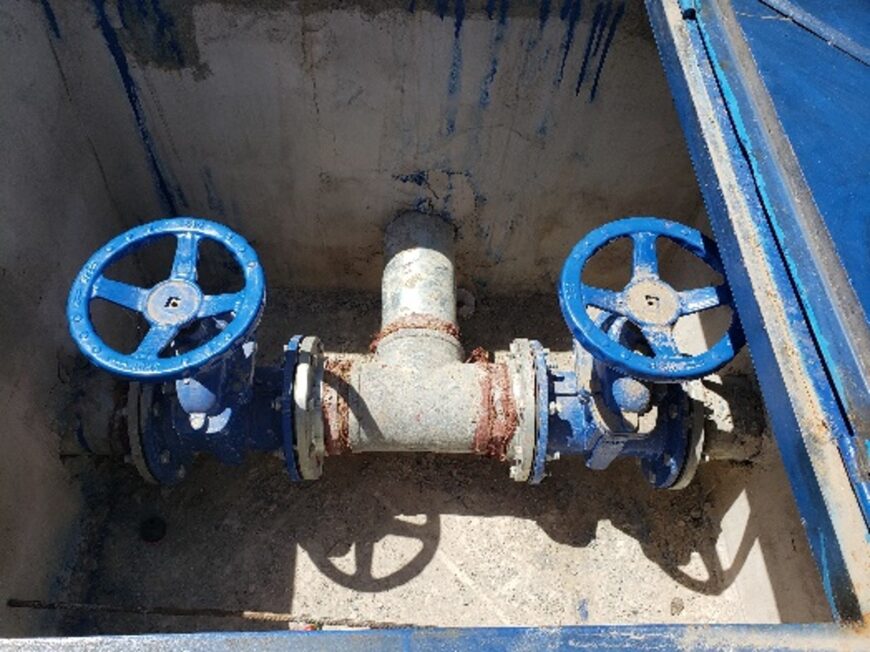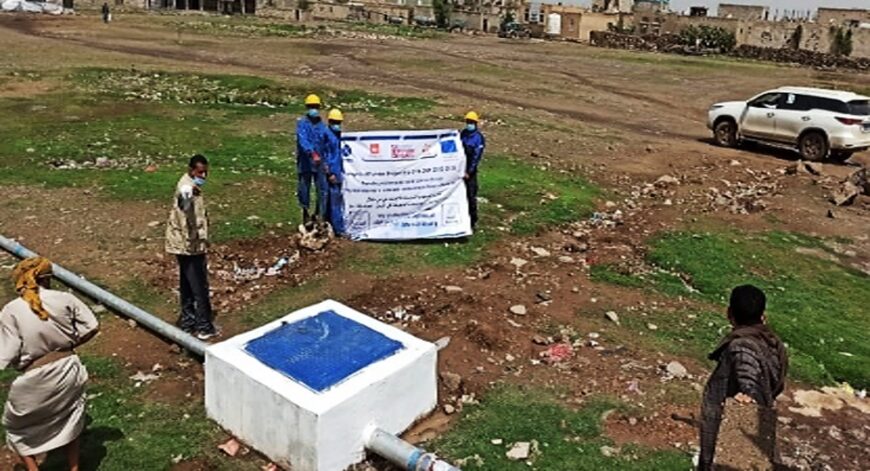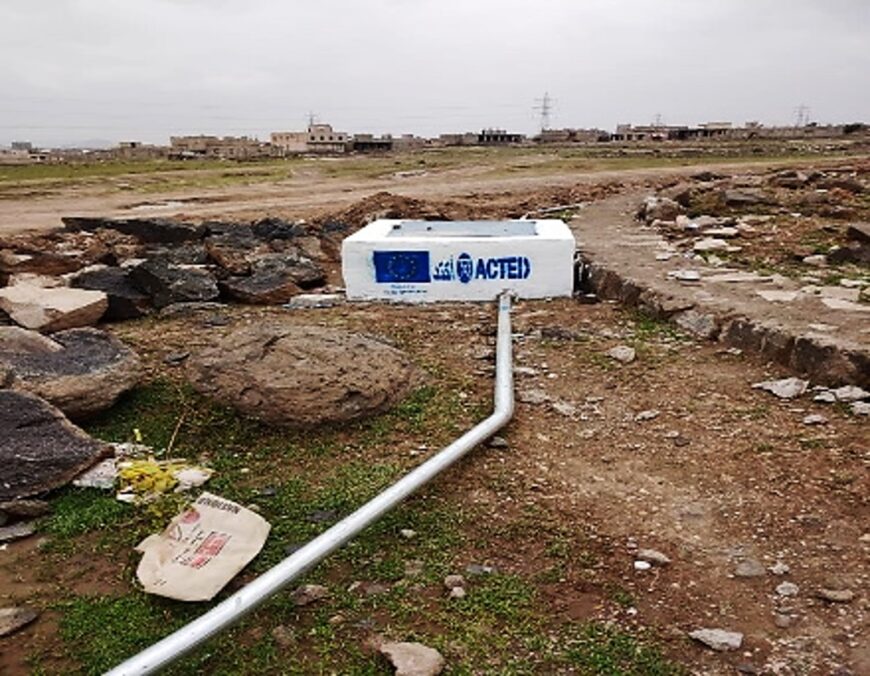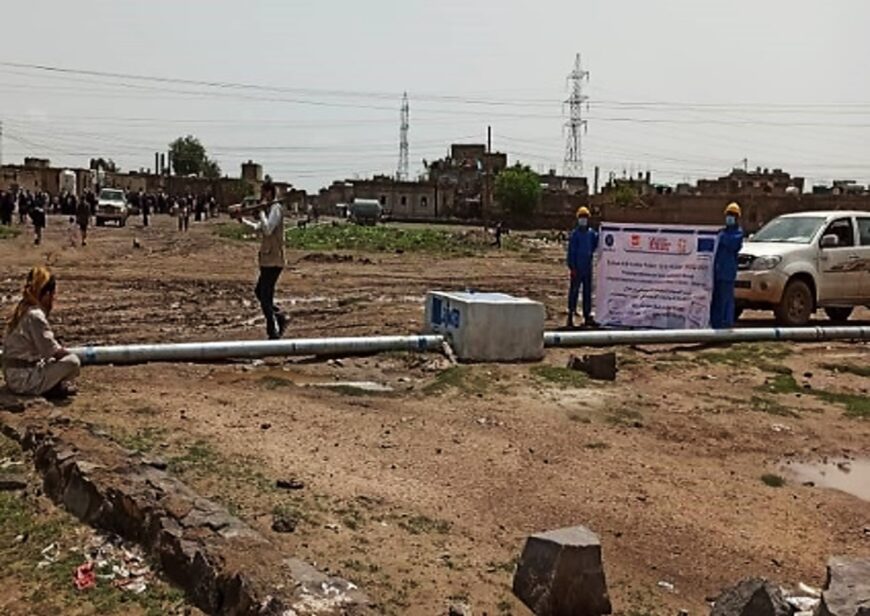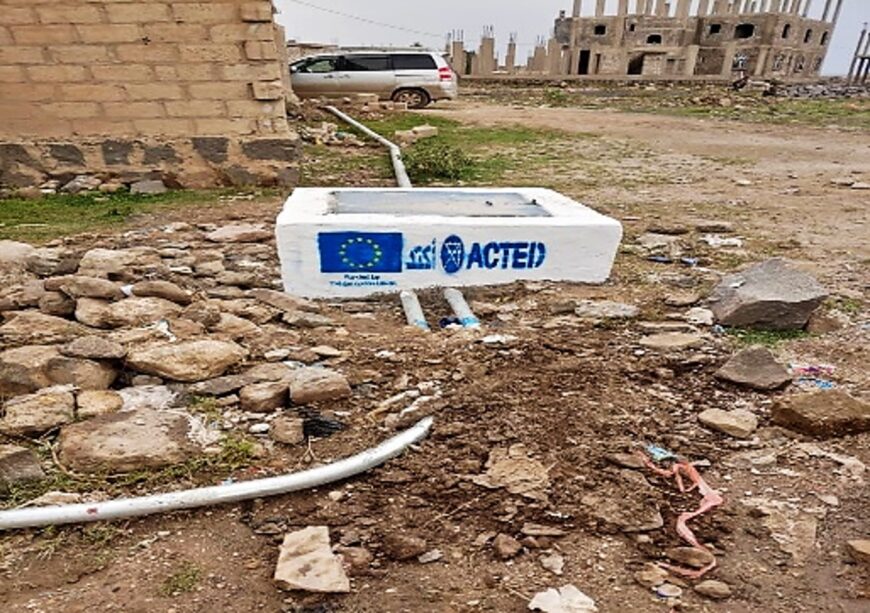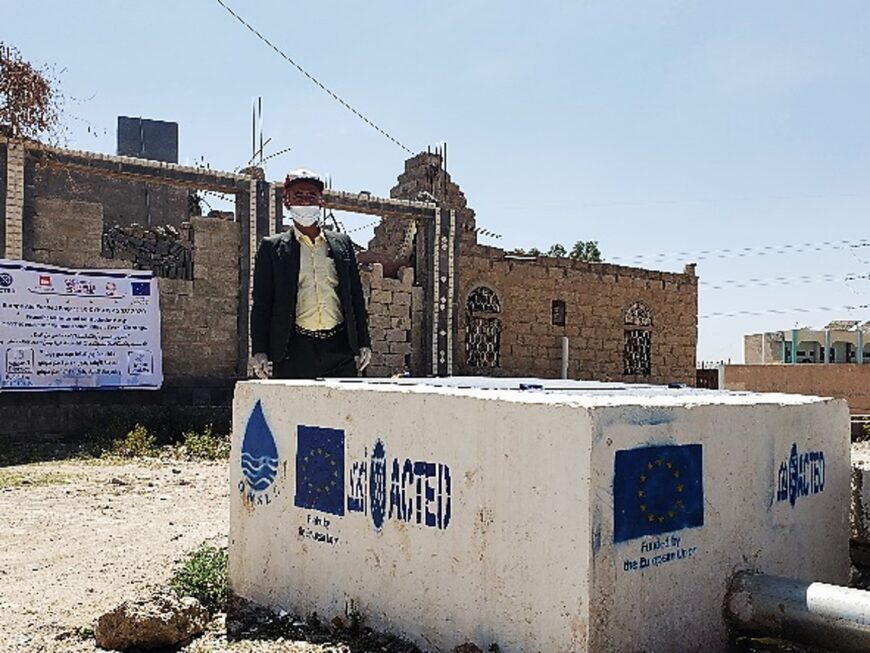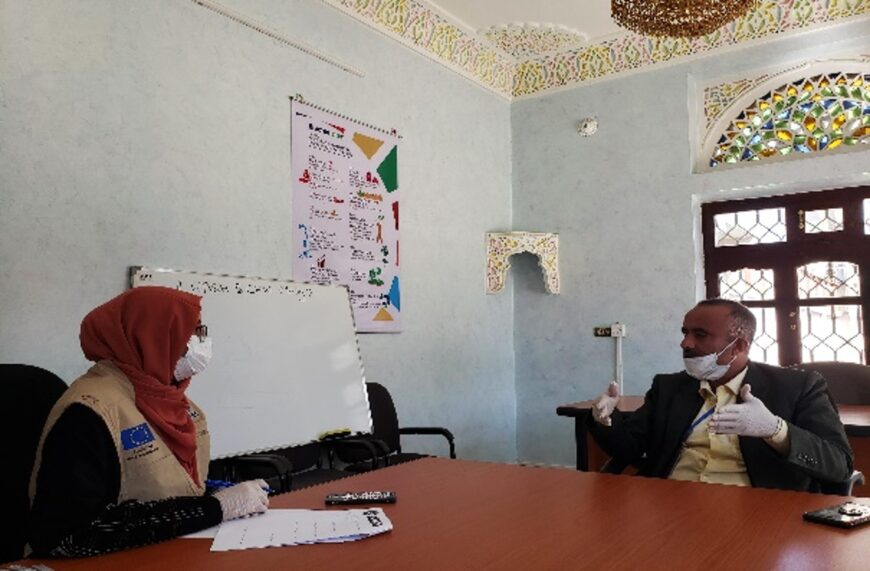Yemen: Guaranteeing access to water in Roma’s neighborhood
On World Water Day, meant to raise awareness on the importance of access to clean, drinkable water especially for conflict affected populations, ACTED sheds a light on advancements and durable solutions implemented through a EuropeAid project. The ACTED-led consortium was able to bring clean, consistent water to 3,000-3,500 vulnerable households in Yemen for the first time through the completion of a large water network!
The protracted conflict in Yemen has caused a chronic water crisis that can only be addressed through durable solutions. Currently, over 19.3 million Yemenis are estimated to lack access to clean and safe water, making Yemen one of the direst water crises in the world. The Roma neighborhood is a new community, formed by internal migration patterns and population displacement over the last seven years, located in the Dhamar Governorate, in the west part of Yemen near Sanaa.
As part of the EuropeAid-funded project “Promoting Resilience and Social Cohesion Through an Integrated Response to Vulnerable Communities in Yemen”, ACTED and its 5 NGO partners, NRC, DRC, SFCG, IRC and CARE, seek to implement durable solutions. This includes rehabilitating and constructing public service infrastructures in the most affected regions. ACTED’s most recent success in sustainable public service delivery was constructing a water network for the Roma neighborhood.
Roma neighborhood: providing access to water in Yemen
Being such a recently developed community, the Roma neighborhood lacks most public services that exist in pre-war areas. The number of families in the Roma neighborhood is estimated to be comprised between 3,000 and 3,500 households. The assessment on the population revealed that . This expansive neighborhood is divided into 8 smaller neighborhoods (Roma, Al-Kahraba, Abu Hassan Al-Hamdani, Al Sharifa, Bin Dawood, Al-Mahajar, Al-Barid, and Al-Bayada).
ACTED is currently engaged in an ongoing rehabilitation of 18 water points in both the Dhamar and Lahj Governorates. On August 2021, ACTED completed the construction of the two phases of Roma water networks with a total length 10,700 M.L. in Dhamar City. The water network has been connected to the first four sub-neighborhoods that were mentioned previously (Roma, Al-Kahraba, Abu Hassan Al-Hamdani, and Al Sharifa).
The Director of the Roma Water Unit told us,
“Prior to the establishment of the Roma neighborhood water network by ACTED, [we] did not have a fixed water source […]. People used to fetch water from a well located an hour away from the neighborhood. The owner of the well raised water to the tanks in assistance to them. However, when the water pump broke down, the residents of the Roma neighborhood were forced to go to a factory two hours away to collect water. Most of the women in the neighborhood spent the whole day fetching water, and the amount they brought daily did not exceed 100 liters of water per family.”
Water access in Yemen is essential to avoid the spread of diseases and access to education
“Having no fixed water source resulted in the spread of diseases and epidemics in the neighborhood due to the lack of hygiene, while also resulting in many students dropping out of schools and the reluctance of parents to enroll their children in schools. This is because the responsibility for providing water to the homes lies with the children and women.”
The Director of the Roma Water Unit always strived to provide the basic component of life, namely water, to the residents of the neighborhood who are among the poorest and most deprived families. He then added that seeing the apparent happiness and joy in the eyes of the neighborhood’s residents was a true joy for him.
The Director explained that there is a fund in the Water Foundation called the Depreciation Fund (AL-Ihlak Fund). This fund is based on taking a percentage of the Roma Water network’s revenues and financial returns to find future solutions to any problems the water network may encounter. Regular maintenance and follow-up of any technical problems that may occur in the network is ensured.
On the way back, we met a group of day workers from the Water Foundation who were returning after finishing their plumbing work.
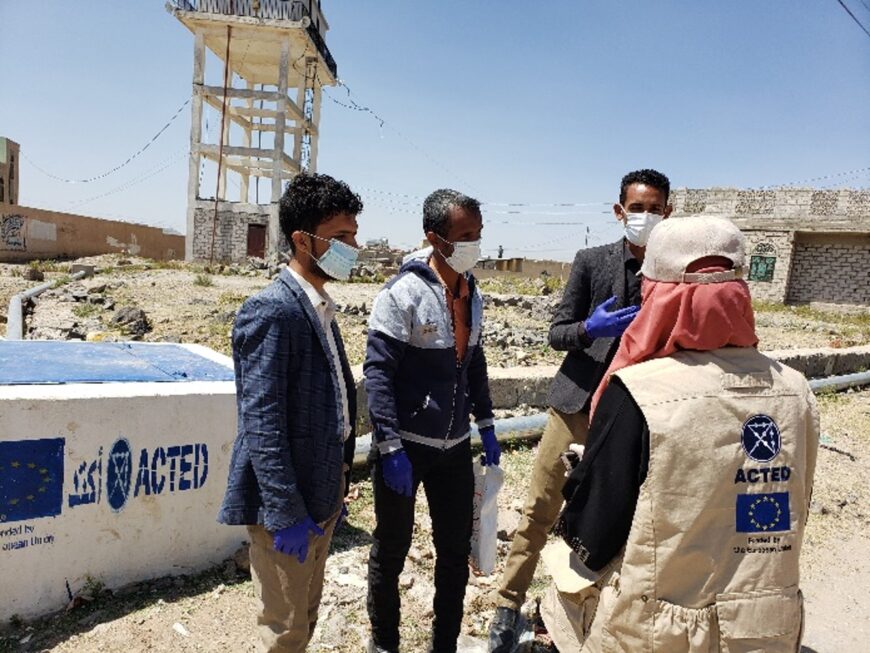
They expressed their utmost delight at returning to work. They said, “we are happy that we could finally resume our plumbing work“.
They also told us that,
“From the struggle of fetching water on daily basis to finally feeling assured and at ease, the Roma neighborhood’s residents are always expressing their happy feelings towards the Roma water network, which covered a large deficit in the neighborhood. With the availability of water, now residents get to worry about other necessary things rather than fetching water”
The staff and volunteers of the Water Foundation in the district of Roma raise awareness of the usefulness of the water system, the importance of water sustainability and the need to preserve the water system. This is indeed considered one of the achievements that they are most proud of in the neighborhood.
With the constant availability of water, the heads of households no longer have to worry about their ability to provide water for their family members or having to pay 12,000 Yemeni Rials for water trucking. Children, in particular girls, have returned to school, and the dropout rate has decreased. Women, especially pregnant and lactating women, no longer fear water scarcity or bad household’s hygienic practices, as general hygiene in the neighborhood has improved with the availability of clean water. In total, the Roma water network supplies 1700 families and a school within the neighborhood.
In addition, the increase in Water Foundation revenues will not only cover employee’s salaries, but will also add funds for future projects, as well as for the provision of current projects’ maintenance fees.
I now have a source of income as I was one of the first to join the water service at the Water Foundation in Dhamar. My house, and especially the bathroom, is now clean and my wife can take care of our children’s hygiene more easily. Neighboring families no longer have to send their children to work in order to provide cash to buy water and bread for the family.
Ahmed* is the head of a family of eight and a resident of the Roma neighborhood. His wife added,
“I used to wait the whole day, from morning until my children return from school, in order to go fetch water together. And we would do this until sunset. And even though we spent the whole day collecting water, the water we collected was still not enough. I am relieved now that there is plenty of water. The situation before was humiliating and very difficult for me. Now, my kids have time to study and do homework…. Now, we have a decent life”
Saba*, the head of a family of four and also a resident of the Roma neighborhood, added that as she went out to work to earn a living, her children were responsible for providing water to their house. They would collect water from the Sabil Tanks (tanks provided, as a part of water trucking activity, by the Yemeni Red Crescent Society) which are more than 100 meters away from her house, and bring it to the kitchen, bathroom, etc.
Now I am no longer worried about water cut offs, because the water comes every week. The level of hygiene has increased, and I have quality time to spend with my family.
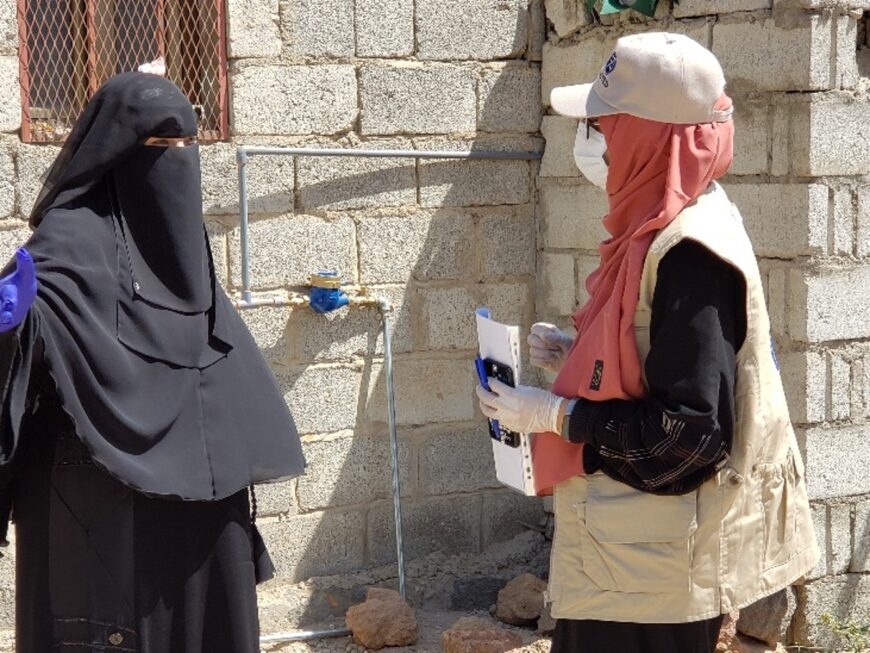
*All names have been changed to protect identities
ACTED, alongside its five INGO partners (NRC, DRC, SFCG, IRC and CARE), is implementing the ‘Durable Solutions’ interventions that deliver long-term, sustainable benefits for communities, rather than a short-term, emergency responses. These solutions support communities in building their resilience and allow them to become less reliant on humanitarian assistance while creating a more sustainable, healthier life in Yemen.
